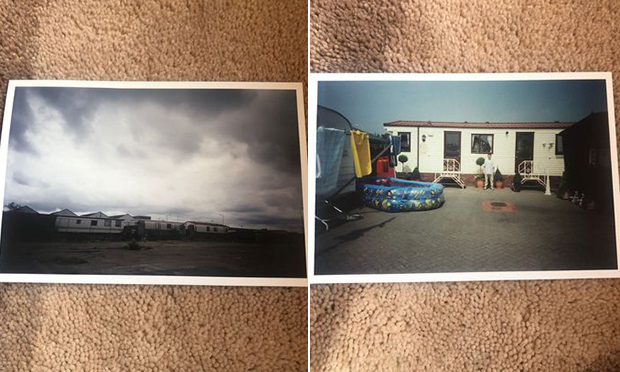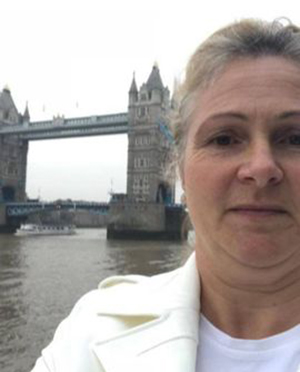‘It broke up our families’: The Travellers who made way for the Olympic Stadium are still fighting for a new site

It’s just under a decade since London hosted the Olympic Games, and the roar of the crowd and excitement of the medal haul has long faded away.
Some Hackney families, though, are still living with the legacy.
Twenty Travellers families were told they would have to move from a Hackney-licensed site on Waterden Road because the land was earmarked for the Games.
The government’s London Development Agency said at the time: “The Travellers live on an area of land that is crucial to the Olympic Park and the legacy development.
“The regeneration of the area can only happen if we relocate the Traveller families to new sites ahead of the Games.
“The regeneration plans for the area will bring long-term benefits to the local community. There will be new state of the art sports facilities, new parkland and thousands of new jobs and homes as part of the Olympic Legacy plan.”
As London Gypsies and Travellers (LGT) engagement officer Mena Mongan explained, it was not as simple as that.
It meant splitting up 20 families, as they had to move to several sites across Hackney, which caused a lot of upset and pain.
As London prepared its winning bid for the 2012 Games, families realised that if the show came to town they would be on the move.
“We were where the stadium is right now,” Mongan said. “We were aware that we were right in the middle of the Games and we would have to move. The worry of it and the stress – even though we were happy about the Olympics coming.”
“Travellers have been in Hackney for generations. It’s a very easy place to live.”
The Games promised to transform some of the poorer parts of London, and Stratford and Hackney Wick saw phenomenal change with thousands of new homes and world-class sporting facilities.
However, it meant transforming the land. The Manor Gardens allotments, and the Travellers in Waterden Road and at a site in Newham, were moved. They got support from LGT to try to find the best solution.
They were not far from the old Hackney Wick Greyhound Stadium which closed in 2003 and was demolished to make way for the Games’ Media Centre – which is now the home of business and universities.
Mongan said the group of Hackney residents were happy where they were because it was an out-of-the-way, secluded spot. Before that they had camped out in the borough.
Princess Anne, an Olympian herself, had been instrumental in the creation of the Waterden Road site.
As part of her role with Save the Children, she met Travellers at a meeting at Lower Clapton Health Centre and said: “Families need homes.”
Mongan lived there for 17 years and recalled: “It was a nice open space. Families were frightened of coming back into the middle of London.”

Not all the alternative sites they were offered were suitable, and in the end the group of more than 100 people were split between three sites.
“It was breaking up families – that was so hard,” Mongan explained. “We had to come down to smaller groups. Everybody had elderly parents and each one wanted to go with the elderly. It caused a lot of upset and anxiety with families. It was the most stressful time.”
She recalled: “It was too much pressure for families.”
She was one of the last eight families to move and at first her group were moved to a temporary site in the Olympic park with building work going on nearby.
“We were on the Olympics whilst the noise was going on, we were right here and the cranes, the noise, the lorries, everything was behind us going on. It was unbelievable. We were there for one full year.
“We had to leave caravans, everything behind. We had temporary community blocks.”
Her move four years later in 2009 took a bit of getting used to.
“We hadn’t got a choice because they were saying they didn’t have the land.”
She added that Travellers were also asked to pinpoint sites they thought could be suitable.
Now near Springfield Park on a former bin depot site, she said: “We were overlooked by high rise blocks, it was like Big Brother.”
The site has six bungalows and two pitch holders.
Children moved schools and families set about registering with new doctors and dentists.
Families were also apprehensive about moving into a new neighbourhood.
In hindsight, Mongan wonders if there should have been a getting-to-know-you meeting.
She said: “We were a bit frightened coming in here not being accepted, the community was frightened to have a Gypsy Travellers site right in their face as well.
“There was never no big issues. It was about them getting to know us and us getting to know them. Everything’s fine. Everybody gets on well but it just needs time for new homes and new families, just like everyone else.”
“As time went people just got on with it. We have made friends amongst the neighbours.”
When the Olympics finally rolled into town, the Travellers were not given tickets to the Games, said Mongan.
“It was quite sad because we were so excited. We used to drive by with the kids there, saying ‘That’s where you used to live, you were born there’.
“You could hear the Games, and I was saying we didn’t even get in to see any of the Games.
“The kids were all excited, we used to watch it on the TV. I said it would be nice if we could have got in to see it.”
She added: “To think you drive through the Olympic Park and see all these new buildings and think what it would be living here, it’s a nice area. You just think we were here and now we’re over there and this is all just a dream.
“For a family to live in there – to say to people we were there at the beginning and we’re glad to be back here now, it would be a lovely thing to see the site on the Olympic Park.”
She recalled how run down east London was and “we were proud the Olympics was going to east London, but it did not bring anything for the Travellers”.
Travellers are campaigning to get back onto the site and have been in touch with the Mayor of London for help.
There are hopes for a new nine-pitch site on a plot of land owned by Transport for London, but there have been concerns that it could be thwarted by a survey’s findings of pollution there.
She said the Olympics and what came after it changed a way of life and meant young people lost part of their culture they did not get a chance to experience.
Now she said Travellers are “not allowed to live out” and they have lost part of their identity.
“The kids grew up knowing everything about the outside. It’s sad to see the young generations and families growing up in houses and not knowing anything about their culture. It’s so hard.
“You’re telling them stories and they’re looking and listening and saying, ‘That sounds great the way you lived’, but they watch videos and they see that but then the shame happens as kids, they are ashamed to say where they are from.”
She added: “My kids are losing their culture. Kids moving into houses have not experienced living in carvans, they have not experienced moving on. I had my choice of moving around on the summer break – that was freedom.”
Looking back at the legacy of the 2012 Olympics, Mongan said: “We had so many teenagers and we said we have to move. Where do our teenagers grow up? We wanted to see a new site being built.”
She added: “The promise was that they would use some of that land.”
Instead some families have been in temporary accommodation and hostels.
Mongan added: “That damages their self and that damages them by thinking ‘Who am I?’ The stress and damage on a young person’s brain and then trying to fit in and ashamed to say that you are from the Gypsy Roma Traveller community because you are living in hostel situations with people and they don’t understand you like living out.
“You’re not allowed to live out anymore, completely out. That was a legacy that we didn’t see happening for us and we’re still fighting.”

Hard to have much sympathy with their plight!
I’ve sympathy with anyone, whether Roma or local businesses, who were sold a pup by politicians punting the Olympics